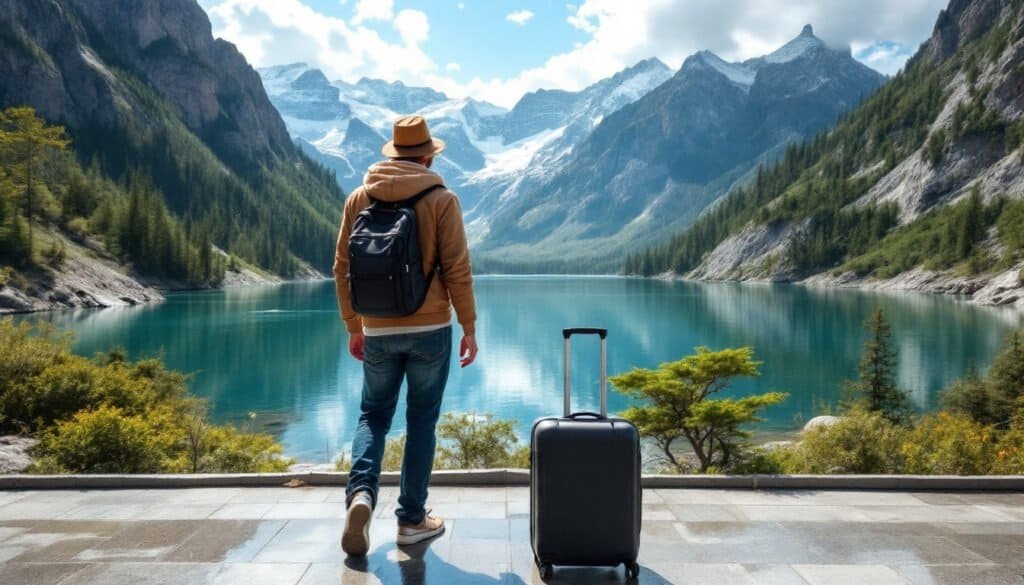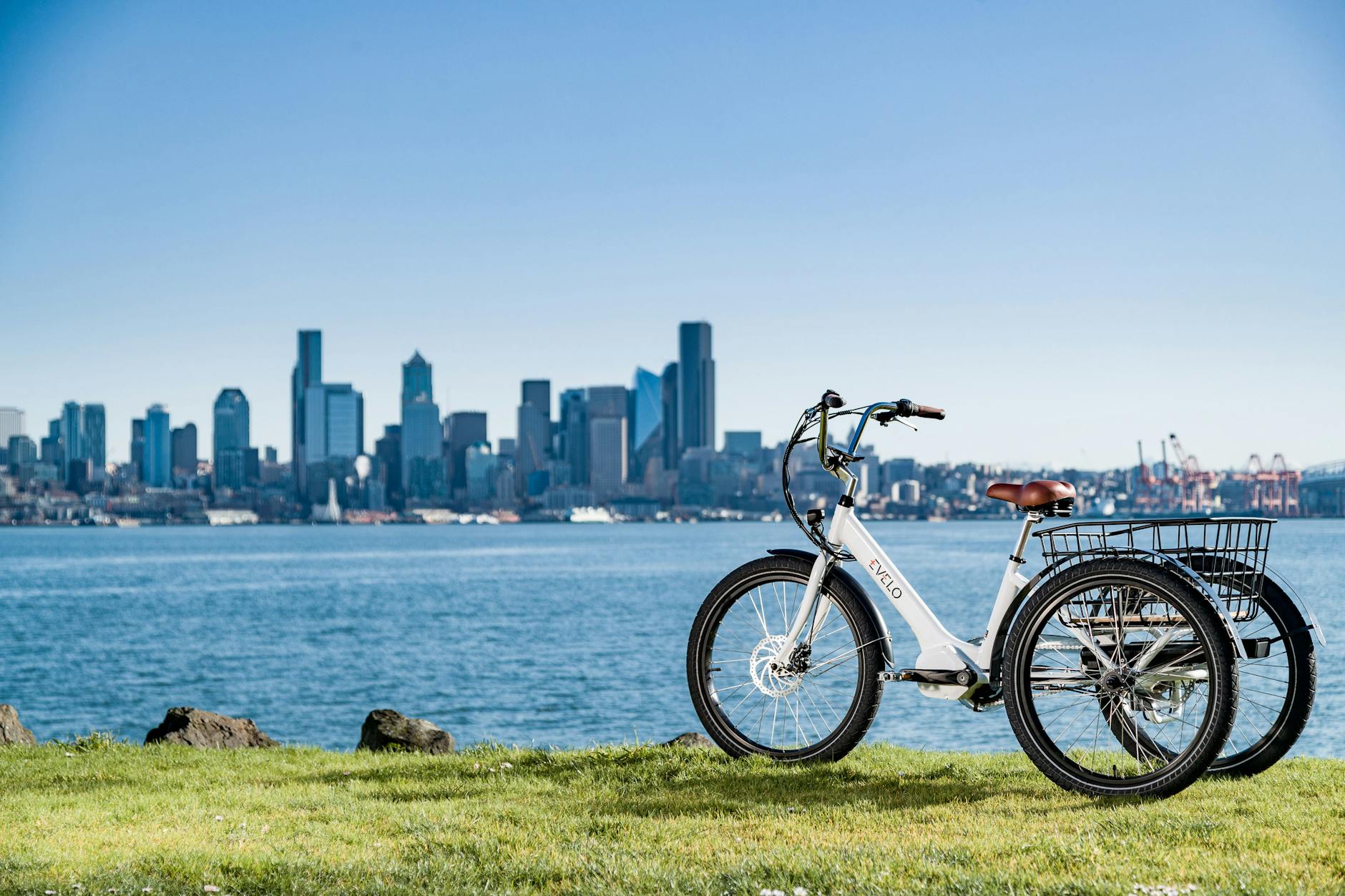Top Guide to Budget Travel Planning: Your Ticket to Affordable Adventures

Dreaming of traveling without breaking the bank? It’s totally possible—and easier than you might think!
Budget travel planning is all about smart choices that let you explore the world while sticking to your financial goals.
Even if you’re mapping out a solo adventure, planning a family getaway, or hunting for hidden gems, the right strategies can save you tons while making your trip unforgettable.
Start planning today and see how far your budget can take you!
Step-by-Step Guide to Budget Travel Planning
Budget travel planning doesn’t have to be complicated. If you’re methodical and thoughtful, it can be as fun as the trip itself.
Here’s a step-by-step way to make sure you get the most adventure for your dollar. Let’s start with the essentials.
1. Set a Realistic Travel Budget
Before you start packing, you’ll want to define how much you can comfortably spend.
Start with a list of categories like lodging, food, transportation, and activities, and allocate funds to each.
Need help? Look at your past spending habits or set priorities: Are you a foodie, or do you prefer splurging on experiences?
Here’s a quick breakdown:
- Lodging: Calculate per night costs based on your trip length.
- Transportation: Consider how you’ll get there and move around—flights, trains, or car rentals.
- Food: Factor in affordable meals, snacks, and maybe a splurge dinner.
- Activities: Include entry tickets or guided tours.
A trip tracker app can make this much simpler!
2. Choose Budget-Friendly Destinations
Dreaming of sandy beaches or charming villages? Research is key! Some destinations are just naturally easier on the wallet.
Southeast Asia, Central America, or Eastern Europe offer tons of experiences for less.
And when in doubt, always compare costs. Apps like Skyscanner or Kayak allow you to assess the affordability factor at a glance.
Here are a few things to consider:
- Look for current exchange rates to stretch your dollar.
- Travel off-peak to avoid high-season price hikes.
- Use online calculators to estimate a destination’s average daily costs.
3. Plan Transportation on a Budget
Getting from point A to B doesn’t have to cost a fortune. If you’re flying, sign up for airfare alerts from websites like Google Flights or Momondo. Flexibility is your best friend!
Mid-week departures and layovers can knock prices way down.
Consider these options:
- Road trips: Share gas money with friends or family.
- Trains and buses: Often cheaper and more scenic than flights.
- Local transport: Skip expensive taxis for metros or bicycle rentals.
4. Research Affordable Accommodation Options
Your bed for the night can make or break your budget.
Hostels are an obvious choice for budget travelers, but don’t overlook vacation rentals, budget hotel chains, or even quirky options like house-sitting!
Websites like Hostelworld or Couchsurfing are excellent resources. Here are a few alternatives worth exploring:
- Hostels: Great for backpackers and social vibes.
- Vacation Rentals: Perfect for families and longer stays.
- House Sitting: Stay free in exchange for looking after someone’s place.
Looking to keep costs down without compromising comfort? Don’t miss Tripping Eagle’s best beginner travel hacks.
5. Save on Food and Dining
Food is an integral part of any travel experience (hello, gelato in Italy!). But you can still embrace delicious eats while keeping costs under control. Start with these strategies:
- Cook your meals if your lodging has a kitchen.
- Visit local markets—nothing beats fresh produce and snacks!
- Street food: Affordable and authentic.
- Look for restaurant promotions or happy hours to save while dining out.
When in doubt, prioritize where locals eat: It’s usually cheaper and tastier.
Practical Money-Saving Tips for Budget Travelers
Here are the key ways you can travel smarter and stretch your budget further:
6. Utilize Travel Reward Programs and Discounts
Travel reward programs are like hidden treasure maps waiting for you to unlock them. Many credit cards offer travel rewards points that can be redeemed for flights, hotels, or even rental cars.
Pair that with loyalty programs from popular hotel chains or airlines, and you’ve got a recipe for savings.
Here’s how to get started:
- Check if your credit card offers points for travel purchases or cash back.
- Sign up for airline and hotel loyalty programs—membership is usually free!
- Explore memberships like AAA or student discount cards for savings.
Taking a moment to review these options can mean scoring a free flight or discounted stay.
7. Avoid Peak Travel Seasons
Avoiding travel during peak seasons, not only saves you money, but you might also find a more relaxed experience.
Why does it work? Simple: Demand spikes during holidays and vacation periods, which inflates prices. Instead, aim for shoulder seasons, the travel sweet spot between peak and off-peak months.
For example:
- Head to Europe in late spring or early fall for milder weather and lower airfare.
- Visit tropical destinations during their slightly “cooler” months.
The added bonuses? Shorter lines and the chance to interact more with locals.
8. Look Out for Free Attractions and Experiences
Why pay for a museum ticket when you can watch history unfold on cobblestone streets?
Many cities offer free walking tours, led by knowledgeable guides passionate about local heritage.
Look out for free attractions, such as public gardens, memorials, or even art installations.
Here’s what to do:
- Search online for free events or festivals happening during your trip.
- Stroll through neighborhoods like Little Italy or iconic markets — visual feasts cost nothing!
- Check out “free day” offerings at museums, usually once a month.
9. Be Flexible with Travel Dates
Flexibility is a traveler’s secret weapon. Through playing around with your departure and return dates, you can score significantly better prices on airfare and accommodation.
Here’s how flexibility can benefit you:
- Use flight comparison tools like Google Flights to see fare calendars.
- Consider overnight stays to take advantage of mid-week travel savings.
- Avoid strict timelines; being a day early or late could save hundreds.
Sometimes, spontaneity and “last-minute planning” can result in surprisingly affordable adventures.
10. Pack Smart to Avoid Extra Costs
Overpacking can sneakily eat into your travel budget. Avoid extra baggage fees and last-minute airport purchases by packing light—yet strategically.
Here are the essentials of traveling like a minimalist:
- Plan your outfits: Layer instead of overpacking bulky items.
- Reuse: Select versatile pieces that can be worn differently.
- Carry travel-sized toiletries and avoid liquids over 100ml to skip issues at security.
Packing efficiently means fewer headaches for you and your wallet.
Tools and Apps to Simplify Budget Travel Planning
Planning a budget-friendly trip can be exciting, but with so many options, it might feel overwhelming. Thankfully, the right tools and mobile apps can take away the guesswork, make comparison easy, and keep you financially on track.
Here’s a breakdown of all you’ll need to simplify your travel plans.
11. Flight and Accommodation Comparison Tools
When it comes to booking travel, comparison tools are your best friend. They can show you amazing price savings in just a few clicks, and every little discount adds up when you’re traveling within a tight budget.
Some of the top platforms to check out:
- Google Flights: Quickly scan for the cheapest dates and routes for your destination. Bonus? It highlights fare drops.
- Skyscanner: This app not only compares flights but also hotels and car rentals.
- Airbnb: It’s great for finding unique stays often far more affordable than hotel chains—ideal for solo travelers and big groups alike.
The magic lies in flexibility—use price alerts on these sites and apps to snag deals when they become available.
12. Expense Tracking Apps
Keeping on top of your travel spending is key to not overshooting your budget. These apps are like digital assistants—they categorize what you spend and remind you how much you have left for those margaritas or museum passes.
Here are a few favorites:
- Trabee Pocket: Perfect if you love simple, no-fuss tracking. It categorizes expenses neatly and works offline.
- Splitwise: This is brilliant for group travel. It splits expenses among everyone so you don’t have to keep awkwardly tallying receipts.
- TravelSpend: Tracks your expenses by category or location for full visibility. Great if you’re hopping cities or countries.
Having an app that tells you where your cash is flowing can save a lot of stress and help keep your trip on track.
13. Travel Forums and Budget Travel Blogs
Why figure out everything on your own when an online community has already been there, done that? Travel forums and blogs are a goldmine for budget-friendly tips, like how to avoid the tourist traps and where to find the tastiest food on the cheap.
Top recommendations:
- Reddit Travel: Dive into threads on destinations, hacks, and personal experiences.
- Lonely Planet’s Thorn Tree Forum: Popular for first-hand advice from travelers worldwide.
- Travel blogs like the Tripping Eagle community. Discover handy hacks, like those in Tripping Eagle.
Bookmark your go-to blogs and forums; they’re not just for planning but for real-time help during your trip. Have a question while traveling? Someone online probably has the answer!
Sustainable and Budget-Friendly Travel Options
Here’s how to incorporate affordable and eco-friendly practices into your next trip.
14. Use Public Transportation or Eco-Friendly Alternatives
Photo by Team EVELO
Why limit your view of a place to the windows of an expensive cab or car rental?
Opting for public transportation like buses, subways, and trams not only saves money but also offers a deeper connection with a destination.
You’ll rub elbows with locals and maybe catch a glimpse of the city’s authentic daily life. Beyond economic benefits, embracing options like biking or walking pumps up your eco-credentials and lets you soak in your surroundings at a thoughtful pace.
Tips for using public transportation:
- Research transit apps like Moovit or local transit websites to get real-time updates and navigational tips.
- Buy daily or weekly travel passes for unlimited rides—perfect for budget-friendly explorers.
- In big cities, try alternative options like rental bikes or scooters. Some metropolis hubs even operate sustainable bike-share programs.
15. Support Local Businesses for Authentic Experiences
Want to truly immerse yourself while also spending smart?
Skip the big-box stores and international chains—local markets, independent restaurants, and family-owned accommodations often provide richer experiences and save you some bucks.
Plus, your money goes right back into the community you’re exploring, supporting local artisans and entrepreneurs.
Advantages of supporting local:
- Street food stalls are usually cheaper (and tastier!) than tourist-heavy sit-down restaurants.
- Handmade souvenirs often carry unique stories, unlike mass-produced trinkets.
- Local guides or neighborhood walking tours can offer insights that standard agencies miss.
For authentic eats, start exploring your destination through food markets or hole-in-the-wall establishments.
Supporting the community is a win-win for your wallet and cultural immersion.
16. Stay Minimalist While Traveling
A more minimalist approach means smaller bags, faster transitions, and fewer chances to lose things.
Plus, you’ll be committing to reduced consumption, which helps the planet.
Here’s how to pack smarter:
- Go lightweight: Opt for versatile, easily washable clothes. Think layers rather than bulky sweatshirts.
- Stick to essentials: You don’t need five pairs of shoes—one for walking and a decent backup pair will do just fine.
- Reusable items are key: Carry a refillable water bottle, reusable shopping bags, and travel-size toiletry bottles to cut down on waste.
Common Budget Travel Mistakes to Avoid
When planning a budget-friendly trip, it’s easy to overlook a few details that could end up costing more than anticipated.
These mistakes sneak up like those last-minute vending machine snacks—they seem small but can quickly add up.
Here are some common missteps and ways to avoid them to keep your trip both fun and frugal.
1. Underestimating Hidden Fees
At first glance, a cheap flight or great hotel deal might look like a major win. But hidden fees can quickly derail your careful planning.
Baggage fees, tourist taxes, resort charges, and even the dreaded service charges at some restaurants can make a significant dent in your budget if you’re not prepared.
These sneaky costs show up in surprising ways:
- Baggage fees: Many low-cost airlines charge for everything beyond a carry-on.
- Tourist taxes: Common in certain European countries, they add up quickly during longer stays.
- Service charges: Included restaurant fees or unannounced extras also catch travelers off-guard.
The solution? Always comb through the fine print when booking. For added help, use tools like Skyscanner or Google Flights to calculate true costs.
Also, research in advance—find out whether your destination has any specific taxes or fees visitors commonly overlook.
2. Skipping Travel Insurance
We get it—insurance can feel like an unnecessary expense, especially when you’re trying to save every penny. But for budget travelers, skipping it could be a gamble that costs you tenfold in an emergency.
Lost luggage, canceled flights, or a surprise trip to the ER abroad can derail not only your adventure but also your finances.
Here’s why it’s a smart move:
- Medical coverage: Even a small injury abroad can trigger major hospital bills.
- Trip interruptions: Insurance often covers cancelled plans due to emergencies.
- Peace of mind: Enjoy your trip knowing you’re backed up if something goes wrong.
When shopping for travel insurance, compare policies. Look for ones that cover your specific itinerary.
3. Overpacking and Paying for Extra Luggage
Overpacking feels like playing travel roulette—you prepare for a little of everything “just in case.”
But those extra shoes or bulky hoodies could lead to higher fees at the airport or unnecessary stress from lugging around an overweight suitcase.
Why packing light is key for budget travel:
- No extra airline fees: Travel with a carry-on to keep costs minimal.
- Mobility: Lighter bags make hopping on and off public transport or navigating hostels easier.
- Better efficiency: Packing only essentials helps you focus on experiences rather than managing your stuff.
Pro tip: Try the “one week” rule—stuff that doesn’t fit into a carry-on doesn’t come on the trip.
Photo by Tima Miroshnichenko
Through steering clear of these common pitfalls, you’ll not only save money but also reduce the stress of unexpected surprises.
Budget travel does not mean you spend less; it’s about being smart with what you have and ensuring every penny is well spent.
Keep this in mind as you map out your thrift-savvy adventure!
Final Thoughts
Traveling on a budget doesn’t mean you have to miss out—it means you get to be creative and resourceful!
From flexible travel dates and budget-specific destinations to savvy tools like cost-tracking apps and rewards programs, there are endless ways to make your dream trip a reality without overspending.
So, what’s next? Start small! Pick a destination that fits your budget, use the tips shared here, and step confidently into affordable adventures.
For more inspiration and practical tricks to keep travel costs low, explore resources like these effective budget travel hacks.
Ready to plan your trip? Don’t stop here; subscribe to our newsletter and dive deeper into more travel insights and experiences from the Tripping Eagle community.
We love making traveling fun, accessible, and sustainable. Happy exploring—your next adventure is closer than you think!











